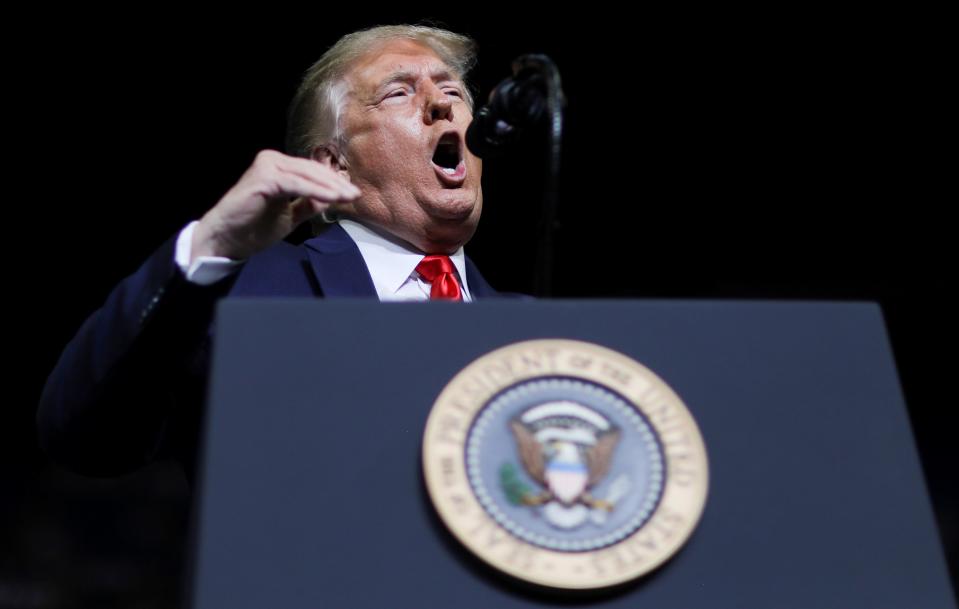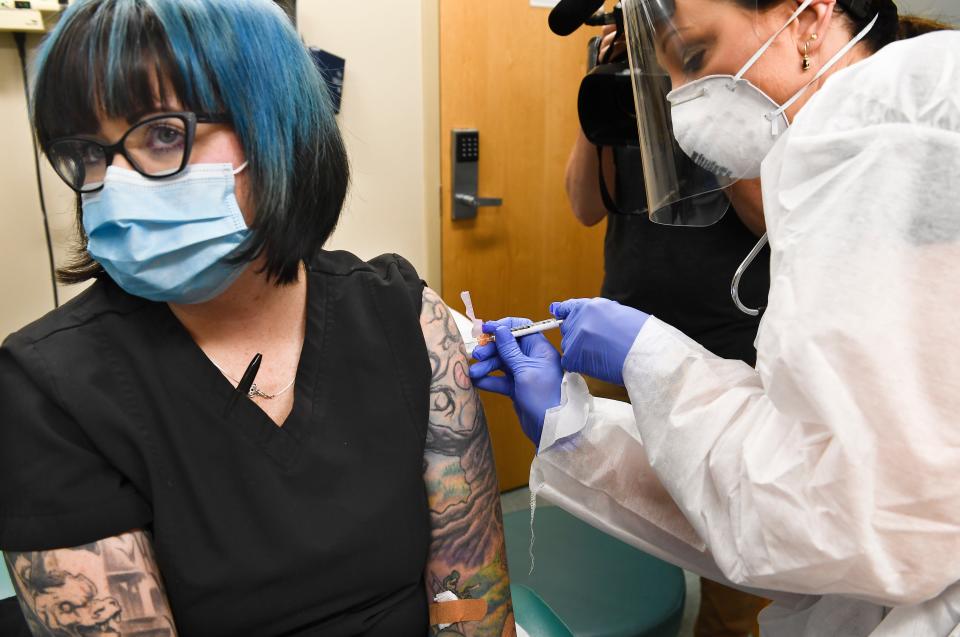156 countries joined a major, WHO-led effort to develop and distribute coronavirus vaccines. The US and China aren't among them.

REUTERS/Leah Millis
So far, 156 countries have signed on to Covax, a WHO-backed effort to develop and distribute coronavirus vaccines.
The Trump administration has said the US won't participate, however, and China is also opting out.
Health experts are concerned that the US's absence from Covax could hinder the country's access to vaccines developed in other countries.
In recent weeks, 156 countries have formally signed on to Covax, a major effort spearheaded by the World Health Organization to develop, manufacture, and distribute coronavirus vaccines.
China and the US, however, both opted out.
Instead, the two countries are focusing on funding vaccine research and development on their own, then striking deals with manufacturers to buy the resulting shots.
But Covax is the only global initiative that aims to ensure a vaccine reaches vulnerable people in poorer nations. The countries that have signed on represent 64% of the global population, and 64 of them are wealthier nations like Canada, Germany, and Saudi Arabia.
The US and China's lack of involvement could hamper the program's efforts, experts say.
"With major countries like the US and China sitting on the sidelines, Covax won't have the financing and political muscle to assure global equity," Lawrence Gostin, a global health law professor at Georgetown University, told Vox.
He added: "I still foresee millions of poor people not having rapid and affordable access to a COVID-19 vaccine."

Fabrice COFFRINI/Getty Images
President Donald Trump's administration has been vocal about its distrust of the WHO, calling the organization's coronavirus response "China-centric." In May, Trump announced the US would pull its funding and membership from the organization.
But the decision to go it alone could come back to bite the US if its own domestic vaccine candidates fail, since opting out of Covax could limit the US's access to vaccines developed by other countries and to manufacturing facilities abroad.
"It's a double-edged sword," Jennifer Huang Bouey, an epidemiologist and senior policy researcher at Rand Corp., told Business Insider. "It hurts the US, and it also probably hurts Covax."
The US is betting on less-established types of vaccines
Globally, developers are testing at least eight types of vaccines. The most established kinds involve inactivated or attenuated vaccines — which rely on injections of weakened or inactivated virus to generate an immune response — and subunit vaccines, which inject specific pieces of a pathogen that stimulate the immune system.
The two strongest candidates in this traditional area so far are from the Chinese companies Sinopharm and Sinovac. Both are in phase-three trials, but neither is part of Covax.
However, the initiative does have traditional candidates in clinical trials, including those from the University of Queensland in Australia and Clover Biopharmaceuticals in China. (Clover joined Covax independently even though China hasn't.)
With its refusal to participate in COVAX, the US "basically let go of the most traditional, most mature technology — that's a risk," Bouey said.
That's because the US's two strongest candidates so far, from Moderna and a Pfizer-BioNTech collaboration, are mRNA vaccines, a type that's never before been approved by the Food and Drug Administration. These vaccines use a technology called messenger RNA to create doses using only a virus' genetic code.

AP Photo/Hans Pennink
If successful, mRNA vaccines could be easier to produce and more effective than traditional ones, since they may prompt a stronger immune response and don't need to be incubated the way traditional vaccines do. But that's a big if — there's a possibility the mRNA vaccines will trigger inadequate immune responses or come with harmful side effects.
Moderna has joined Covax independently.
The US could lose access to international manufacturing
A big challenge authorities around the world are still tackling is how to manufacture and distribute a vaccine after it's been proven safe and effective. The Coalition for Epidemic Preparedness Innovation — a foundation that funds vaccine research and is one of Covax's main backers — announced in June that it had identified enough vaccine manufacturers to produce 4 billion doses in a year.
The US's refusal to participate means it may lack access to that infrastructure.
"It's really just US versus all these other countries," Bouey said. "The US will be left on its own."

Reuters
The US's absence could limit Covax's manufacturing capacity as well, since the initiative could distribute more vaccines if it had access to more American facilities.
The US's economy and reputation could suffer
Even in a best-case scenario in which the US creates a successful vaccine, the country could suffer economic repercussions if it hoards all the doses, or if its supply chain can't effectively distribute extra doses worldwide.
That's because countries without a vaccine would continue to struggle with the economic impacts of COVID-19, and their economic fates are intertwined with the US's.
"We will continue to suffer the economic consequences — lost US jobs — if the pandemic rages unabated in allies and trading partners," Thomas Bollyky, a senior fellow at the Council on Foreign Relations, told The Washington Post earlier this month.
Then there are larger long-term questions about the US's global reputation as a public-health leader, Bouey said.
"Even during the height of the Cold War, US and Soviet Union scientists were working collaboratively with WHO on eradicating polio in 1950s to 1980s," she said. "Right now, in the middle of the COVID pandemic, the US is really changing the track."
Hilary Brueck contributed reporting.
This story has been updated with new information. It was originally published September 3, 2020.
Read the original article on Business Insider

